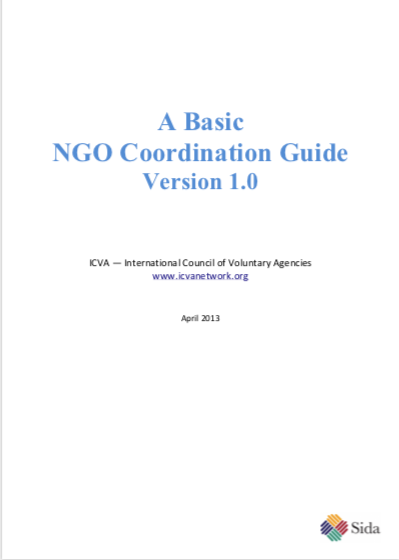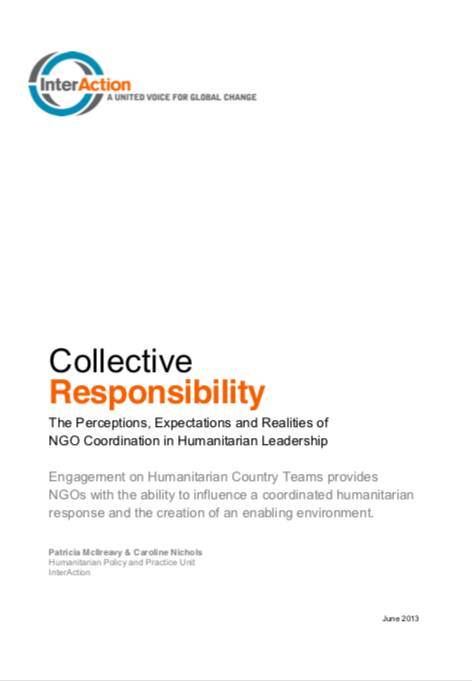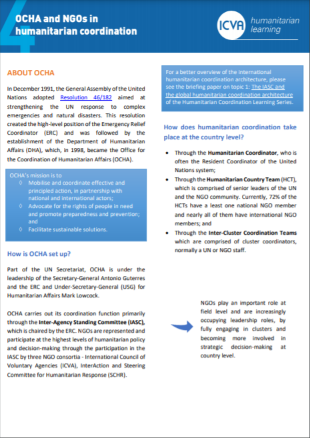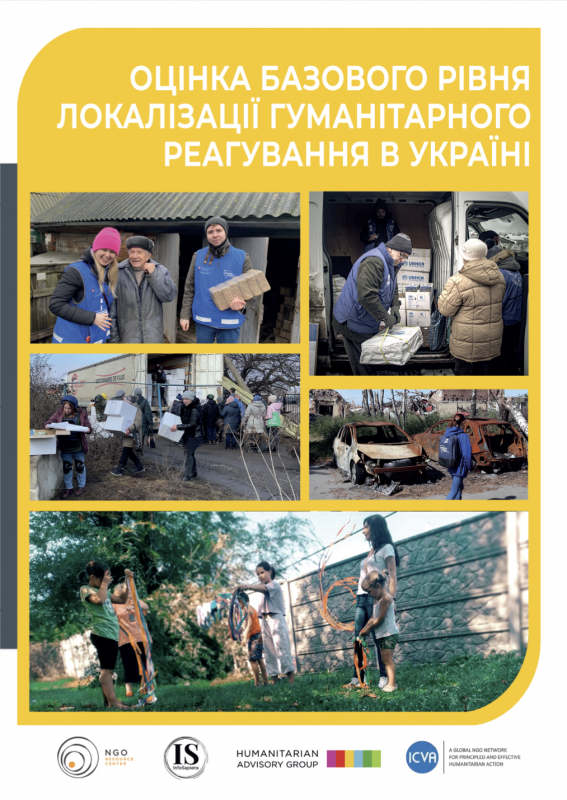
A Basic NGO Coordination Guide
Humanitarian coordination , NGO coordination
This Guide is not meant to be a definitive “how to” manual, but it focuses on issues and areas to consider when undertaking NGO coordination and when setting up an NGO coordination body. It is an entry point into the world of NGO coordination – an area of humanitarian response that is vast in...




